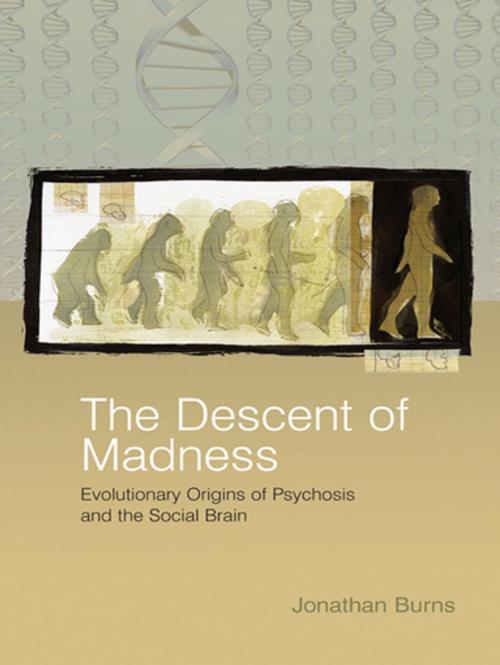The Descent of Madness
Evolutionary Origins of Psychosis and the Social Brain
Nonfiction, Health & Well Being, Psychology, Pathological Psychology, Clinical Psychology, Psychotherapy| Author: | Jonathan Burns | ISBN: | 9781135449063 |
| Publisher: | Taylor and Francis | Publication: | March 12, 2007 |
| Imprint: | Routledge | Language: | English |
| Author: | Jonathan Burns |
| ISBN: | 9781135449063 |
| Publisher: | Taylor and Francis |
| Publication: | March 12, 2007 |
| Imprint: | Routledge |
| Language: | English |
Drawing on evidence from across the behavioural and natural sciences, this book advances a radical new hypothesis: that madness exists as a costly consequence of the evolution of a sophisticated social brain in Homo sapiens.
Having explained the rationale for an evolutionary approach to psychosis, the author makes a case for psychotic illness in our living ape relatives, as well as in human ancestors. He then reviews existing evolutionary theories of psychosis, before introducing his own thesis: that the same genes causing madness are responsible for the evolution of our highly social brain.
Jonathan Burns’ novel Darwinian analysis of the importance of psychosis for human survival provides some meaning for this form of suffering. It also spurs us to a renewed commitment to changing our societies in a way that allows the mentally ill the opportunity of living.
The Descent of Madness will be of interest to those in the fields of psychiatry, psychology, sociology and anthropology, and is also accessible to the general reader.
Drawing on evidence from across the behavioural and natural sciences, this book advances a radical new hypothesis: that madness exists as a costly consequence of the evolution of a sophisticated social brain in Homo sapiens.
Having explained the rationale for an evolutionary approach to psychosis, the author makes a case for psychotic illness in our living ape relatives, as well as in human ancestors. He then reviews existing evolutionary theories of psychosis, before introducing his own thesis: that the same genes causing madness are responsible for the evolution of our highly social brain.
Jonathan Burns’ novel Darwinian analysis of the importance of psychosis for human survival provides some meaning for this form of suffering. It also spurs us to a renewed commitment to changing our societies in a way that allows the mentally ill the opportunity of living.
The Descent of Madness will be of interest to those in the fields of psychiatry, psychology, sociology and anthropology, and is also accessible to the general reader.















